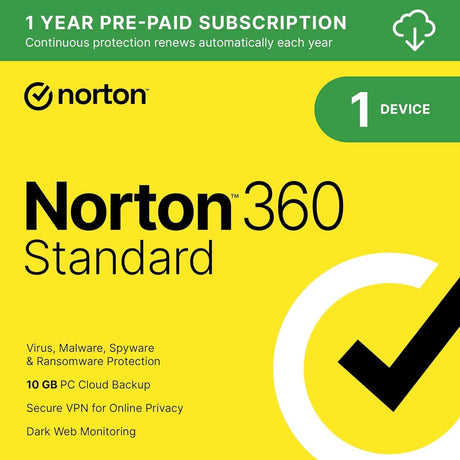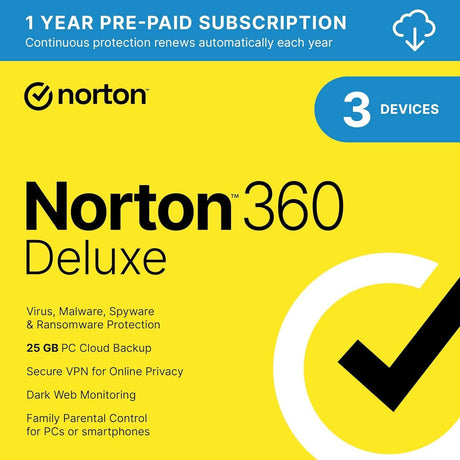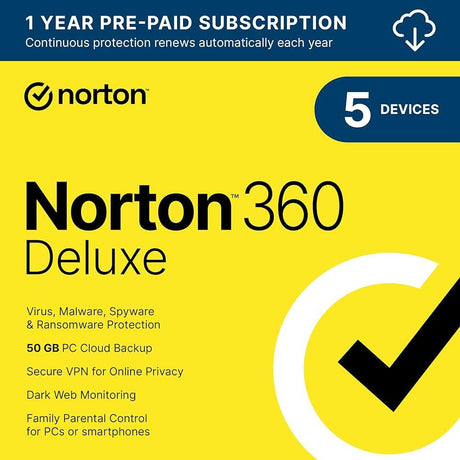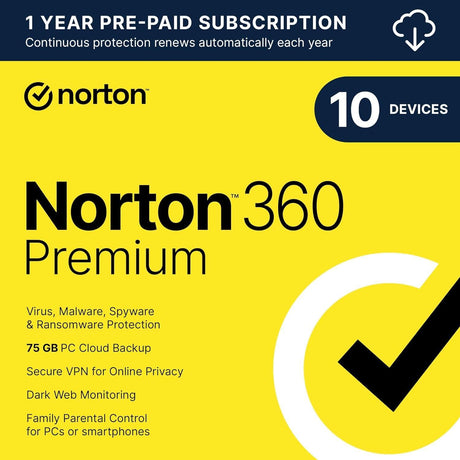E-commerce hasn’t just transformed shopping. It’s transformed holiday culture. Even when you go to big box stores and gift shops, you’re surrounded with reminders to download apps for coupons, check their website for deals, or follow them on social media — all decaled in festive colors and designs. E-commerce and holiday shopping have become almost synonymous.
Unfortunately, that means that holiday shopping is open to the same threats that anyone on the internet has to be wary of: viruses, malware, and scams. Here are our tips for keeping you and your data safe while doing your holiday shopping online this year.
1. Get antivirus and antimalware protection
Before getting into how you can keep yourself protected, we recommend you download antivirus security software onto your device. Our other holiday cybersecurity tips will help you avoid malware, but just in case you miss something, having dedicated antimalware software is your final layer of protection. You can get your program from either the software publisher of your choice, or get it at discounted prices from a certified software retailer.
2. Don’t click spam URLs
Have you ever gotten an urgent, poorly written email from an email address you didn’t recognize during the holidays? Or maybe a text or social media message from someone you don’t know? Regardless of how the message was sent, they tend to contain one thing in common: a URL.
Our holiday cybersecurity tip is simple: never click the link. These links lead to malware-infested websites that will either download malware immediately or cover the page in malicious ads. Just flag the email or message as spam and delete it.
3. Confirm the URL you’re shopping on
Some scam sites will pretend to be well-known shopping platforms like Amazon. When you’re doing your holiday online shopping, they’ll look believable, with functioning navigations, product galleries, and checkout carts. They might even send a confirmation email for your order after you check out.
However, when you paid, your card information wasn’t actually used to buy your gifts. It was stored by a malicious party for use later. When that happens, you’re beyond holiday cybersecurity tips. The only thing you can do is report the card to your bank as stolen.
To avoid this, always double-check the URL of the site. Does it use .net instead of .com? Is the main site name broken up in a strange way (i.e., “ama.zon”)? Is it using http instead of https?
If you see any discrepancies, leave the site and find the real one you were looking for.
4. Avoid phishing scams
During the holidays, we all expect our loved ones to reach out to us. But if someone knows who you’re connected with, our next holiday cybersecurity tip is a warning: they can reach out to you pretending to be them. They’ll often ask you to send gift cards, either as a gift or so they can do their holiday online shopping for their kids, friends, or family.
If you get a suspicious email or message from someone claiming to be a person you know and love, verify it’s actually them. If they emailed, call or text their number to confirm what they want. If they messaged you on social media, check their profile to see if you recognize it.
This holiday cybersecurity tip boils down to this: no matter what, never send someone a gift unless you know for sure it’s the person they claim to be!
5. Use strong passwords or passphrases
This is basic cybersecurity 101, but it’s worth adding here: make sure all the passwords for all of the accounts you’re using for your holiday shopping online are secure. There are two approaches: complicated mixed-character passwords (like “zH84@639zpt74”) or unpredictable passphrases (like “Elephant-Nozzle-Cartwheel-Plane”). The more chaotic it is, the more difficult it is for hackers to either guess or brute-force your password.
6. Use a password manager
Complicated passwords and passphrases are tough to remember, and they won’t do you good if your account is so secure that even you can’t get in. That’s why our next holiday cybersecurity tip builds off the last one: import your passwords into a password manager.
Password managers store your passwords in the cloud behind one single master password. You can install extensions to your favorite browser to have them automatically fill out login forms with your account’s login details. This way, for every account, you get the power of a secure password without the struggle of remembering it.
7. Use a virtual credit card
A service some banks provide is a virtual credit card. This card comes with a unique number, security code, and expiration date, but it isn’t a new card; it’s a mask for your current one. Our holiday cybersecurity tip is to set one up and use it for holiday shopping online.
If your card details get compromised, you won’t need to talk to your bank’s fraud department and wait for them to go through your transactions and manually cancel each one. You can just delete the virtual card, and the thief won’t be able to use it.
8. Regularly scan your computer for malware
If you have a dedicated antimalware program or you’re just using the security that came with your operating system download, we have one last holiday cybersecurity tip: regularly scan your device. If you accidentally installed malware or a virus, your scan will locate it so you can remove it.
Shop for Software at SoftwareCW

We don’t just offer great holiday cybersecurity tips. Since 2014, SoftwareCW has been helping shoppers find the software they need at discounted prices. When you’re looking for gifts for the holidays, there’s nothing better than software tools you know they will use. Whether it’s a Microsoft software download for a student who needs Microsoft 365 products or an up-and-coming music producer who needs audio editing software, you can find your next gift at SoftwareCW.













